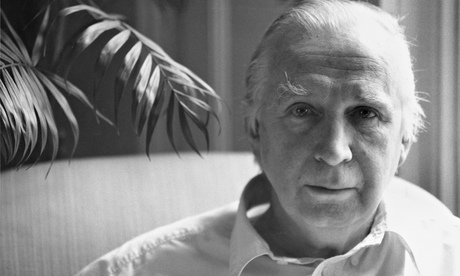Founding editor of the London Review of Books and, behind the scenes, a formative influence on the literature of his age

Karl Miller was ringmaster to the most distinguished stable of writers in Britain
The enduring reputation of Karl Miller, who has died aged 83, will be as the greatest literary editor of his time, and one of the greatest ever. He founded, with Mary-Kay Wilmers and Susannah Clapp, the London Review of Books, and went on to edit "the paper" (as he always called it) for 10 years, and co-edit it for a further three years with Wilmers. Alan Bennett described the LRB as "the liveliest, the most serious and also the most radical literary magazine we have". Over its lifetime, it has elicited contributions from all the best British writers – Philip Larkin, Seamus Heaney, Angela Carter, Martin Amis, Hilary Mantel – and, with its long and often playful essays on every conceivable subject, become an indispensable part of the nation's intellectual life. A main aspect of Miller's editorial genius was his ability, intuitively, to match a book with the right reviewer, whom he had known for years and whom he could persuade to do the thing for pennies as a "favour to Karl".
The LRB was devised to fill the vacuum left by the Times Literary Supplement when, in 1978-79, an 11-month lockout at Times Newspapers left Britain without a serious reviewing organ. The idea had been around for some time, bruited originally by Stephen Spender and Frank Kermode, but it took Miller et al to get the LRB off the ground – initially as a supplement to the New York Review of Books, but soon as an independent publication. Working simultaneously as professor of English at University College London from 1974 to 1992, Miller toiled indefatigably at the LRB. It was not uncommon to see him marking proofs while listening, with one ear, to a visiting lecturer. Multitasking came as easily to him as overwork.
More
And from Shelf Awareness:
Karl Miller, founding editor of the London Review of Books and, "behind the scenes, a formative influence on the literature of his age," died Wednesday, the Guardian reported, noting that his enduring reputation "will be as the greatest literary editor of his time, and one of the greatest ever." He was 83.
Author Andrew O'Hagan described Miller as "the leading literary figure of his generation and the funniest man I've ever known. He changed the picture for nearly five decades of writers and readers, editing and founding the best magazines, promoting voices that people were unlikely to have heard before. He championed V.S. Naipaul and Seamus Heaney, Frank Kermode and Angela Carter. Not only did he give writers places in which to write, but he gave them subjects, he sharpened their style, and he pushed them to be braver than they were before. If Karl liked you, you felt you had passed the ultimate exam."
Jon Riley, editor-in-chief at Quercus, which published Miller's essay collection Tretower to Clyro, commented: "I don't think I ever left Karl's presence without feeling that he had, even when old, ill and tired, made the day better through his wit, kindness and incomparable intelligence about writing and writers. His books are a testament to all that, and much more."
The LRB was devised to fill the vacuum left by the Times Literary Supplement when, in 1978-79, an 11-month lockout at Times Newspapers left Britain without a serious reviewing organ. The idea had been around for some time, bruited originally by Stephen Spender and Frank Kermode, but it took Miller et al to get the LRB off the ground – initially as a supplement to the New York Review of Books, but soon as an independent publication. Working simultaneously as professor of English at University College London from 1974 to 1992, Miller toiled indefatigably at the LRB. It was not uncommon to see him marking proofs while listening, with one ear, to a visiting lecturer. Multitasking came as easily to him as overwork.
More
And from Shelf Awareness:
Karl Miller, founding editor of the London Review of Books and, "behind the scenes, a formative influence on the literature of his age," died Wednesday, the Guardian reported, noting that his enduring reputation "will be as the greatest literary editor of his time, and one of the greatest ever." He was 83.
Author Andrew O'Hagan described Miller as "the leading literary figure of his generation and the funniest man I've ever known. He changed the picture for nearly five decades of writers and readers, editing and founding the best magazines, promoting voices that people were unlikely to have heard before. He championed V.S. Naipaul and Seamus Heaney, Frank Kermode and Angela Carter. Not only did he give writers places in which to write, but he gave them subjects, he sharpened their style, and he pushed them to be braver than they were before. If Karl liked you, you felt you had passed the ultimate exam."
Jon Riley, editor-in-chief at Quercus, which published Miller's essay collection Tretower to Clyro, commented: "I don't think I ever left Karl's presence without feeling that he had, even when old, ill and tired, made the day better through his wit, kindness and incomparable intelligence about writing and writers. His books are a testament to all that, and much more."
No comments:
Post a Comment